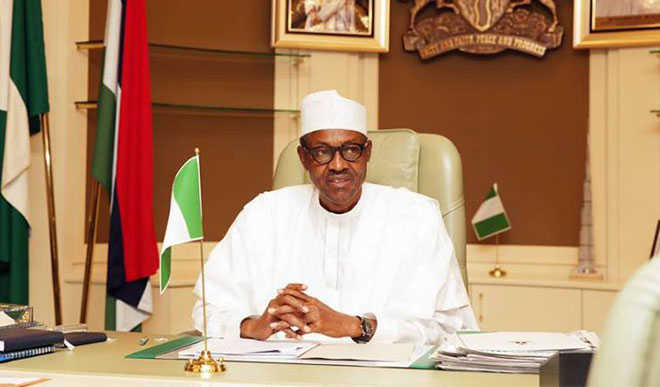
Older Nigerians may easily find a link between the title of this article and the famous mantra of “to keep Nigeria one, is a task that must be done”, which drove the campaign of the Federal sideunder General Yakubu Gowon during the 1967 – 1970 Nigeria Civil War. The efficacy of that mantra is attested to by the outcome the war which was the unification of this countryat the end of hostilities in January 1970.
Today, a new mantra similarly aimed at re-inventing the Nigerian nation has been launched by President Muhammadu Buhari, and it goes that “to fix Nigeria is a task that must be done”. Putting the mantra in his own words he had said as much to a retreat for ministerial nominees at the Presidential Villa Abuja with the theme “Delivering change from precepts to practice”. The President observed that the ministers are coming on board the ship of governance at an interesting time. He had told them that “so much has been said about the state of our economy. It is expected that we make the running of Government at all levels as lean as possible, avoid waste and conserve resources. As ministers, you must be the vehicle that will administer the change”.
Hence although the pronouncement was to the 36 minister-designates in the Presidential Villa last weekend, the message is nevertheless for all Nigerians.Thus the ministerial designates are only the drivers of the change process being initiated by the present administration.
Seen in context, this new deal can only work if its philosophy permeates the entire public sector of the country, from the federal to the state and local governments. Yet as the old saying goes, the journey of a thousand steps begin with the first step, and this President Muhamadu Buhari has just taken with his new cabinet.
Under the circumstances it is needless to point out that for the change dispensation to be successful, the new thinking which the retreat is all about, needs to be articulated along defined strategic steps that will guarantee effective resolution of the problems on ground.
As many Nigerians will easily admit, the scope of development challenges facing this country today demands a new mindset, which the retreat hopefully has addressed. Infact popular wisdom holds that if the task ahead is juxtaposed with the level of decadence in the country’s public sector which drives the country, the President may even discover that just 36 ministers are not enough for the administration, even as cost considerations may not allow him the liberty of contemplating more of them. As many of the minister-designates who had served as governors and ministers earlier will easily recall, a sizeable portion of the public service is grossly dysfunctional, hence out of order. In that state of disorder which pervades the system, it is not surprising that hardly are routine functions carried out, not to talk of reforms, as envisaged by the Buhari administration. It is therefore for good measure that an overview of the public service was part of the engagement of the retreat participants.
At the risk of sounding immodest, it may be necessary to note that weaknesses of the public sector feature at virtually all levels. For instance, there are still civil servants at the directorate level who cannot boot a computer. It is not a new story that several heads of departments and agencies ascended to the top positions of the system without any verifiable measure of competence.
This author recalls the sordid development in a federal agency which hireda consultant inhuman resources to conduct a personnel audit, following a mass recruitment exercise that enjoyed scant recourse to due process. The exercise was to verify claims by both existing and newly recruited staff with respect to their qualification for their positions. Following the consultant’s report that only 13% of the screened staff were qualified to work in the establishment, the management team opted to destroy the report by burning, and pay off the consultant, in order to suppress the truth of their manning circumstances.
In another development, while discussing with a director in a federal establishment, this author was shocked to hear the gentleman confess with glee that he does not read newspapers. It was later confirmed that he actually spent his spare time in the office playing computer games and watched Disney channel on his official television in the office. With such level of shameful indulgences from the officers mentioned above, what quality of service delivery can be expected from them in term of moving government business forward and offering leadership example to subordinates?
Outrageous as the stories may be, the syndrome of square pegs operating in round holesin the public service environment is rife. Even at that, if the general attitude to work of some bureaucrats leaves much to be desired, the matter of finance is a different kettle of fish. In many agencies in the public sector, at least until the advent of the Treasury Single Account (TSA), the recurrent vote was nothing more than pocket money for the powers that be. While the capital votes may remain seemingly untouchable, being managed by the Central Bank of Nigeria(CBN), the recurrent votes are usually lodged with the commercial banks, where they can be withdrawn even at midnight as long as an errant bank manager is willing to play along.
The foregoing offers just snippets of the polluted environment which the Buhari ministers will have to drive through the envisaged change in the country’s public life.That is the terrain in which they shall be expected to actualize the lessons of the retreat with the aim of transforming their designated agencies from the status quo of decadence to happening enterprises.
Given that the main challenge shall come from the civil service, the need also exists to predispose the top echelon of the civil service, across the three arms of government to buy into this new vision. It will therefore not be out of place for the Head of the Civil Service of the Federation to initiate corresponding retreats for all cadres of the civil service to facilitate their harmonized perception of where the government is going. Otherwise the ministers will be working at cross purpose with the bureaucracy which they are to supervise.
Beyond the foregoing the same exercise should be carried out for the civil service, of the states and the local government councils, to ensure that the anticipated reforms permeate every tier of governance. This is the new direction that will fix Nigeria.

 Join Daily Trust WhatsApp Community For Quick Access To News and Happenings Around You.
Join Daily Trust WhatsApp Community For Quick Access To News and Happenings Around You.


